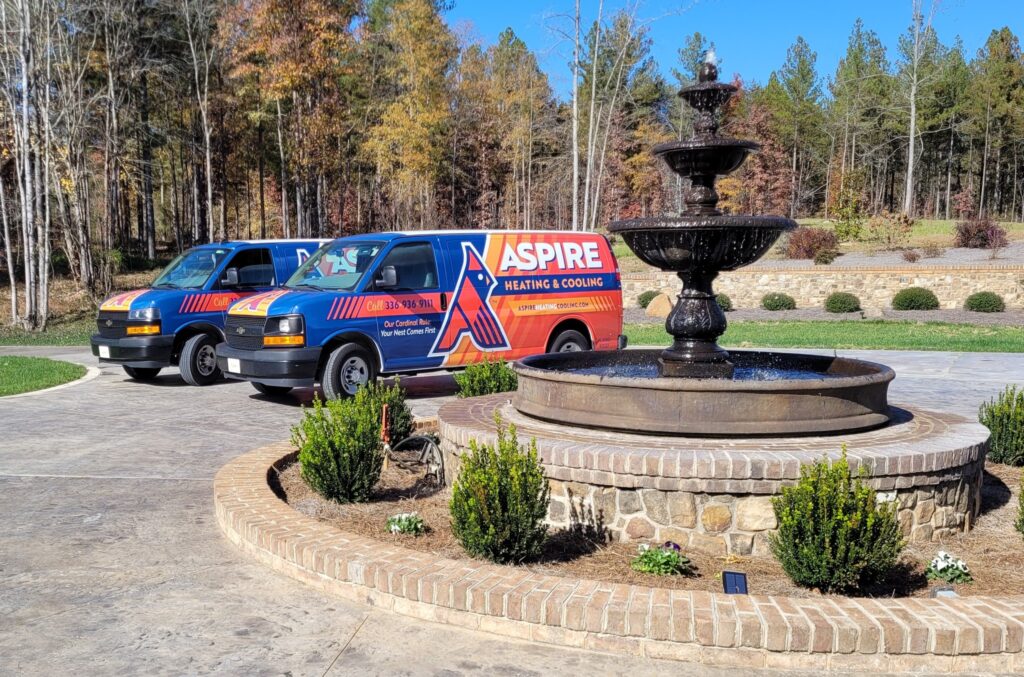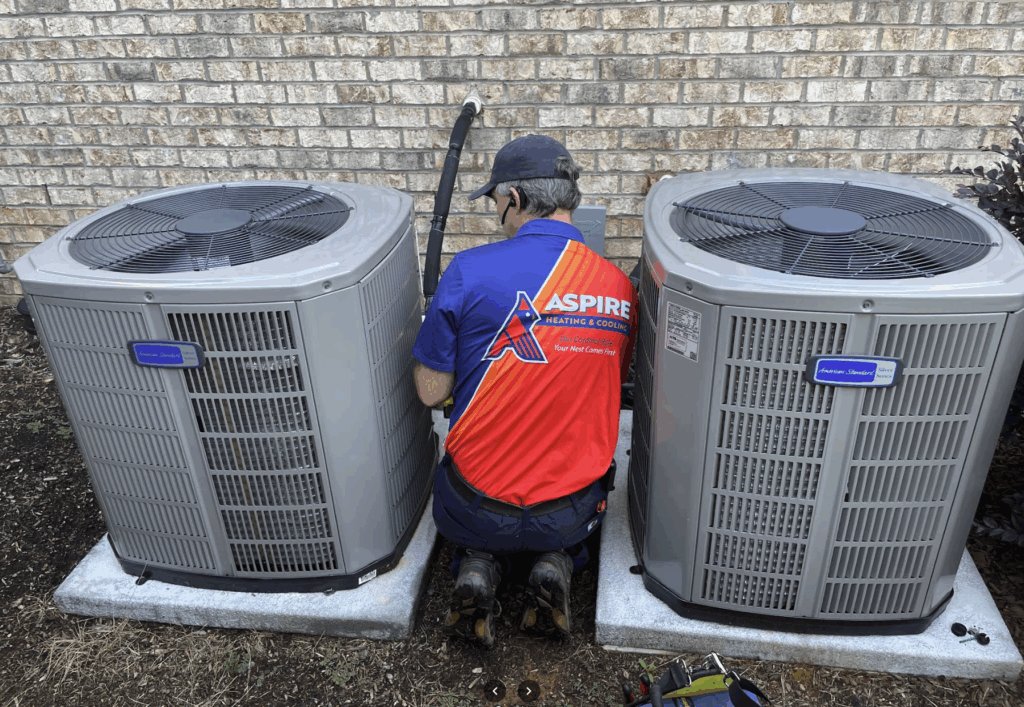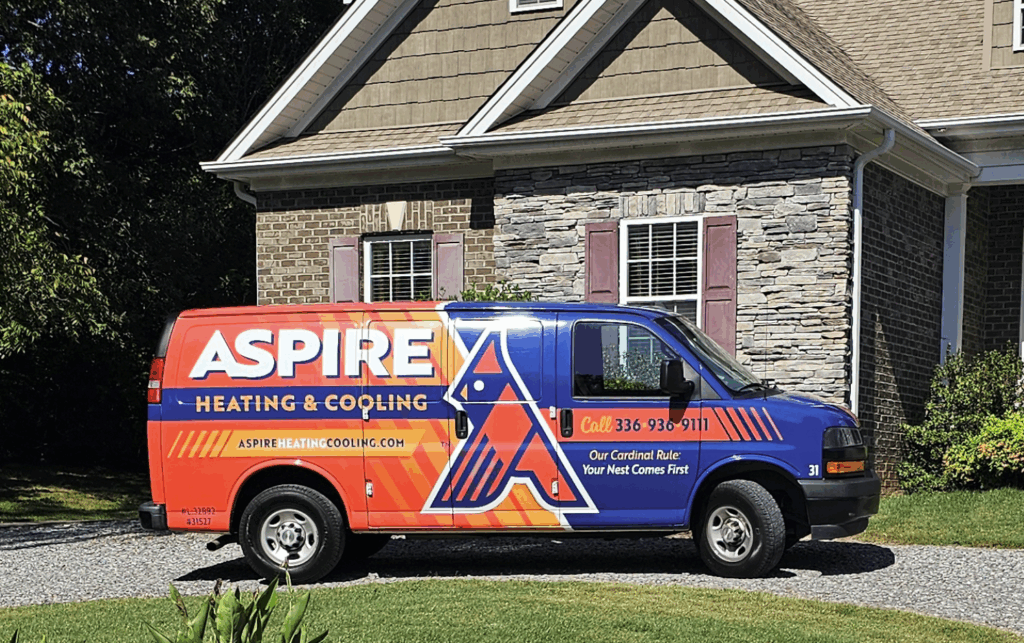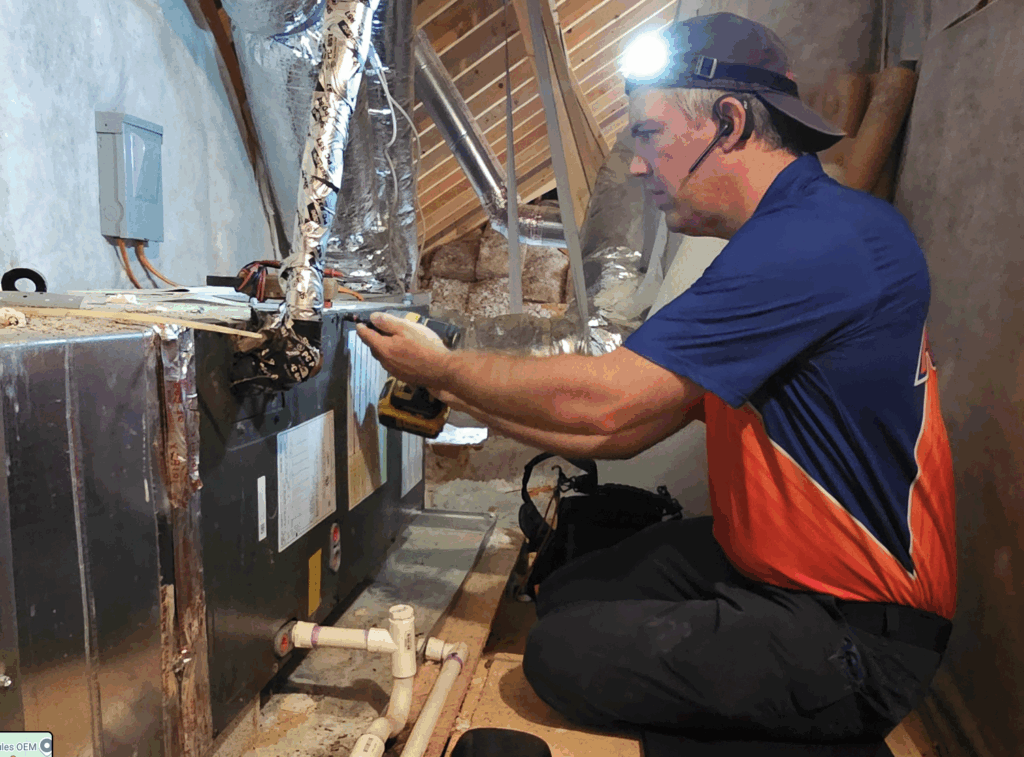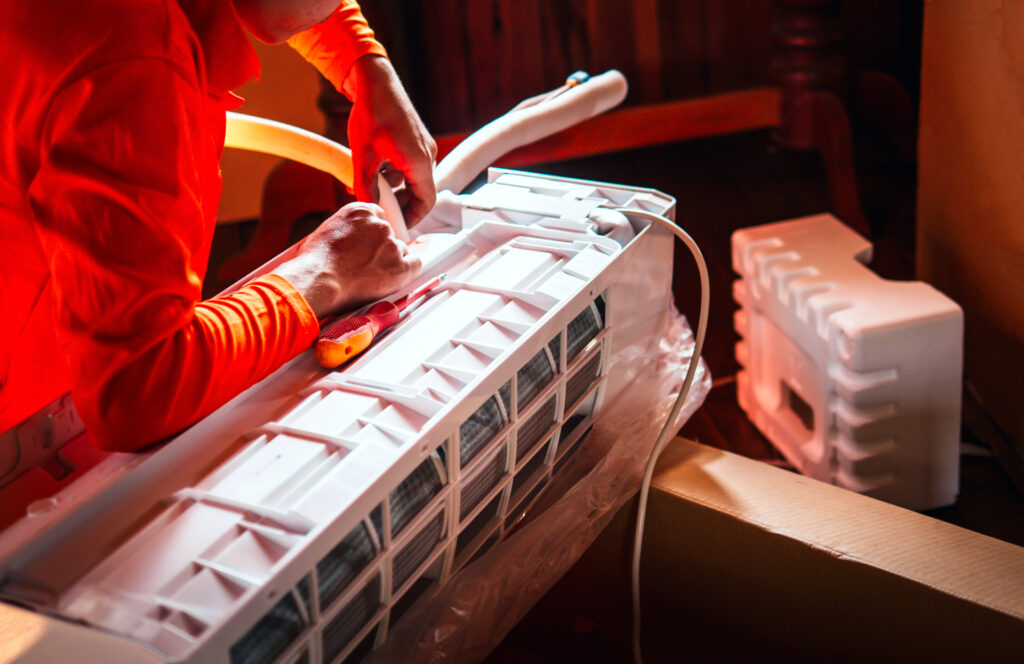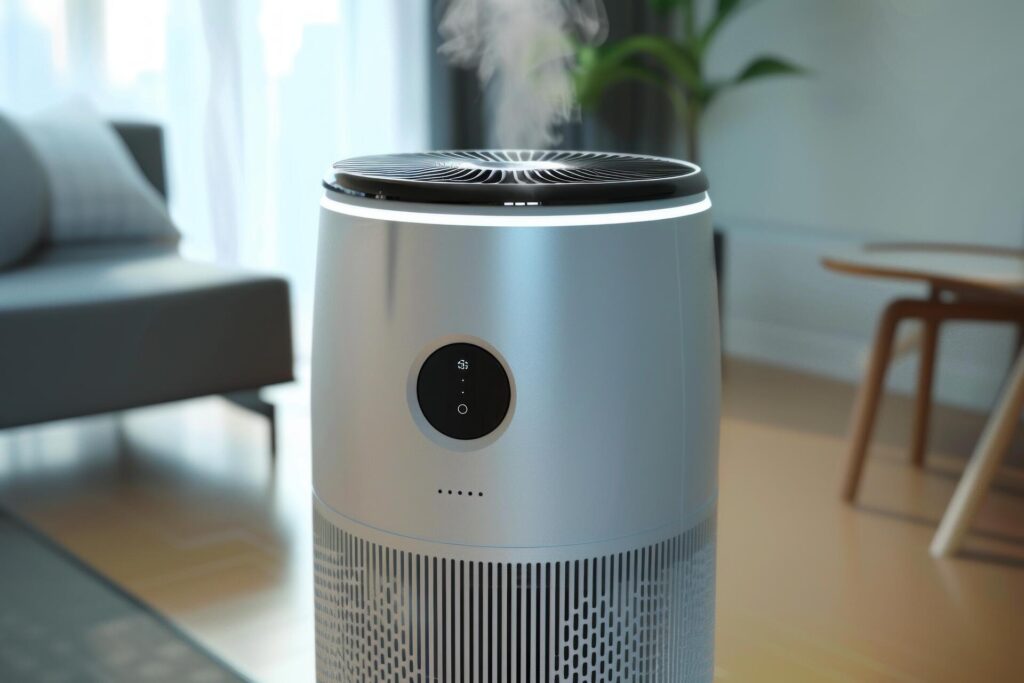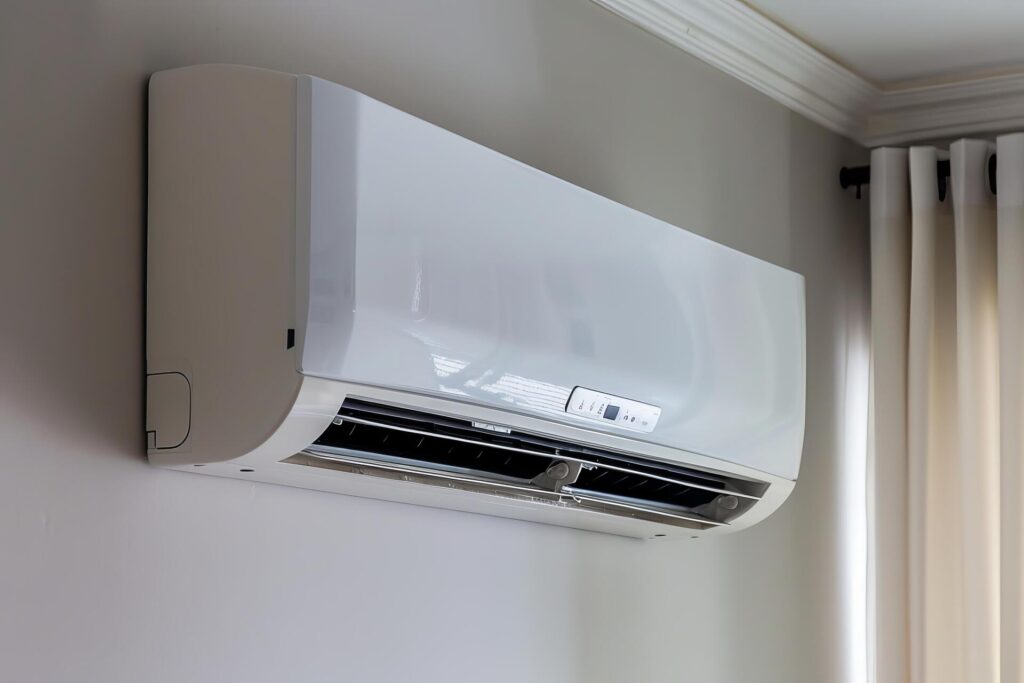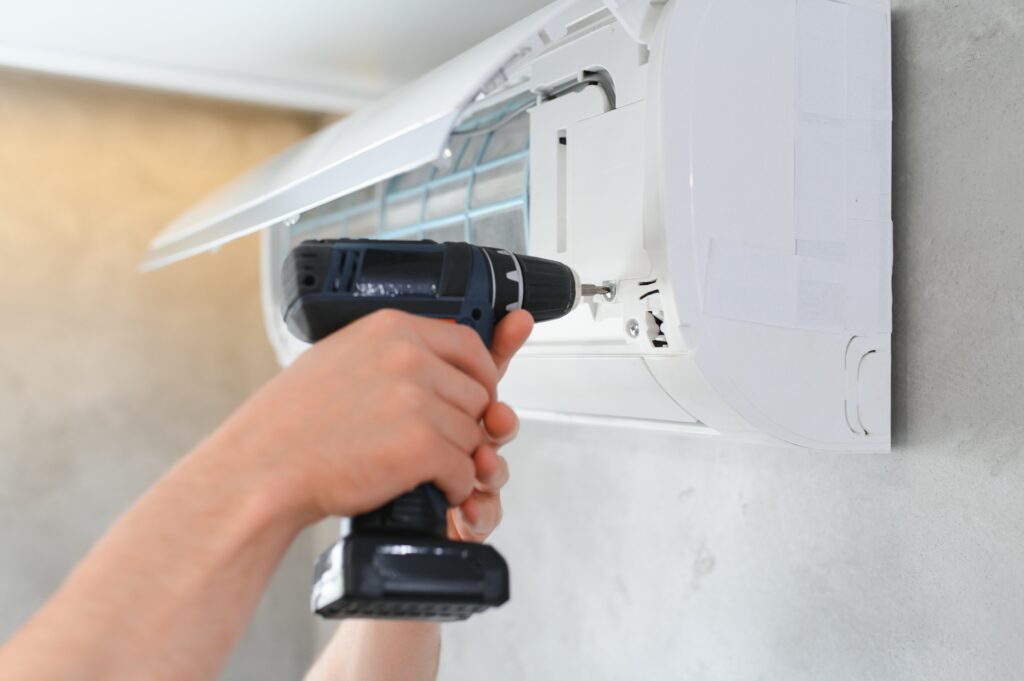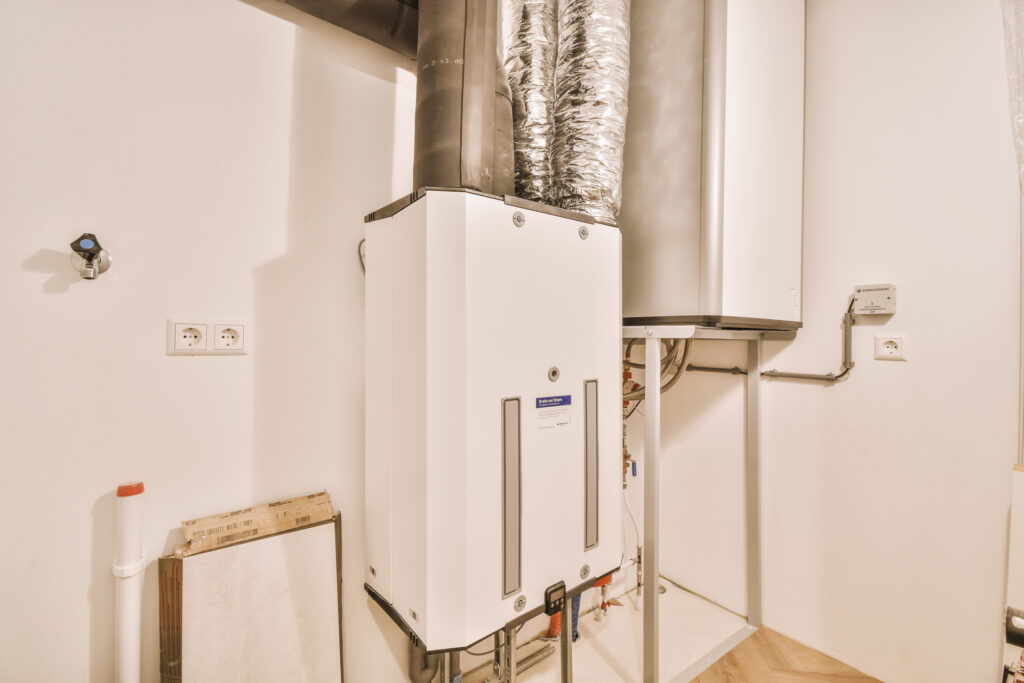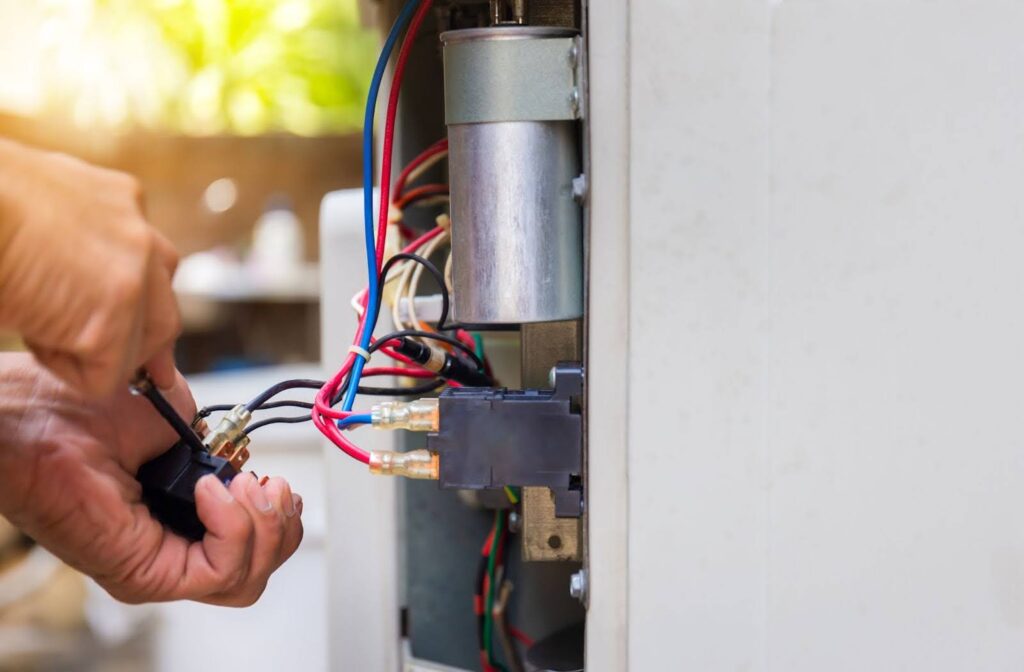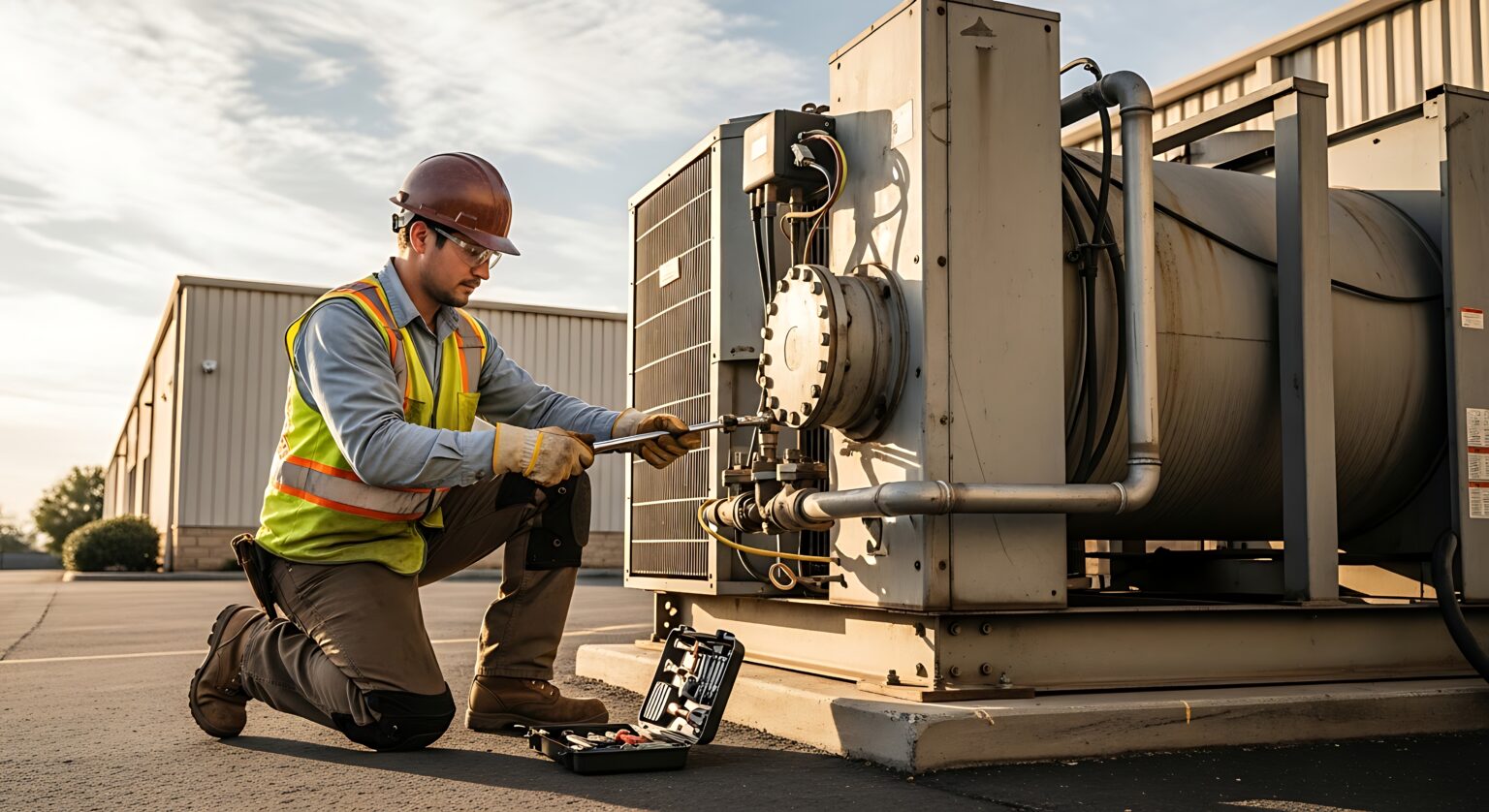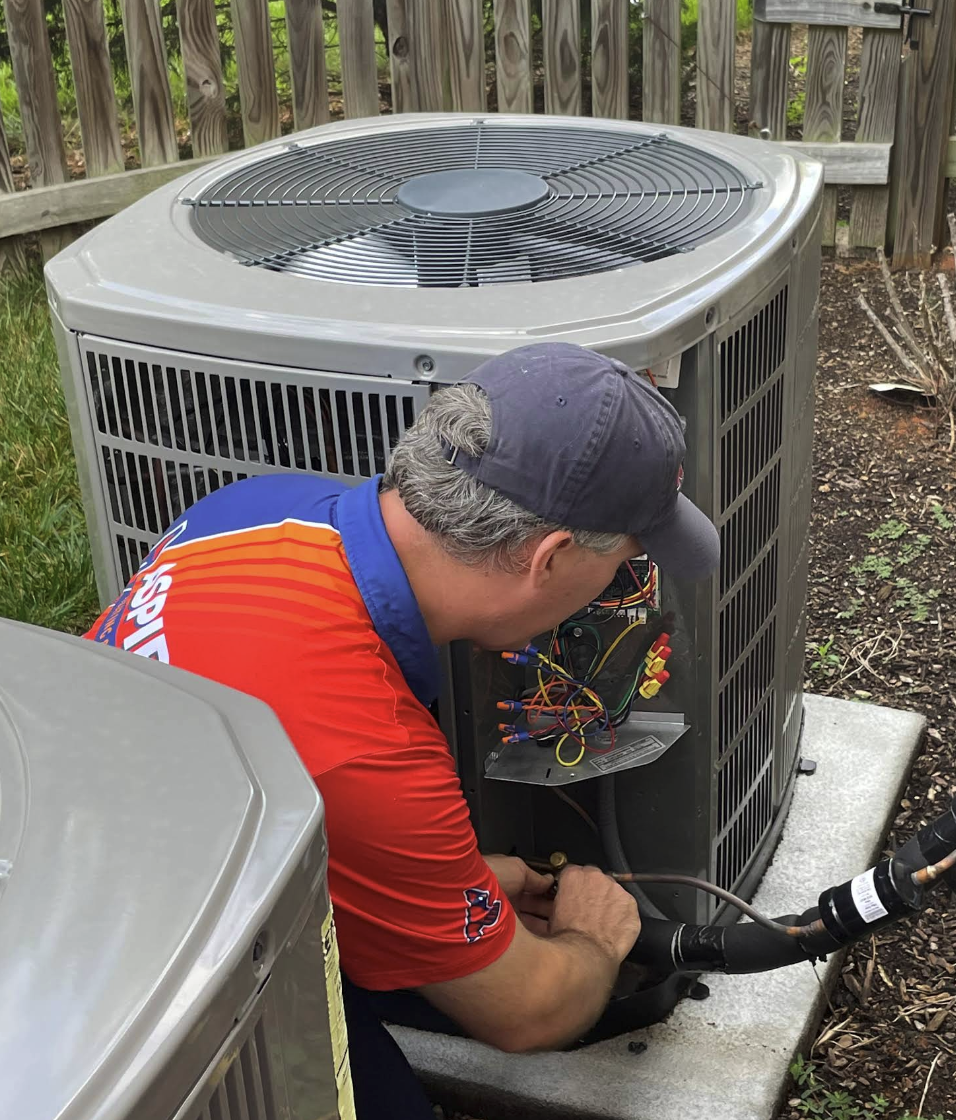When it comes to safeguarding your home and family during emergencies, your HVAC system is often an overlooked hero. At Aspire Heating & Cooling, we understand that North Carolina’s unpredictable weather—from summer hurricanes to winter ice storms—makes emergency preparedness essential. Your HVAC system isn’t just about comfort; it’s a critical component of keeping your home safe when severe weather strikes. From backup power solutions to strategic equipment placement, here’s how proper planning can help your heating and cooling systems protect your family when it matters most.
Why Your HVAC System Matters in Emergencies
Your HVAC system can be a genuine lifeline during extreme weather events. When temperatures soar into the 90s during summer or plunge below freezing in winter, maintaining a stable indoor environment becomes essential for health and safety—particularly for young children, elderly family members, and anyone with chronic health conditions. According to the CDC, exposure to extreme temperatures can lead to serious health risks including heatstroke, dehydration, hypothermia, and frostbite. A functional HVAC system during emergencies isn’t a luxury—it’s protection for your loved ones.
Backup Power Solutions: Keep Your System Running During Outages
Power outages are one of the most common challenges North Carolina homeowners face during hurricanes, severe thunderstorms, and ice storms. When the grid goes down, your HVAC system stops working—leaving your home vulnerable to dangerous temperature extremes. Installing a backup generator is one of the smartest investments you can make for your family’s safety and comfort.
A properly sized generator can keep your heating and cooling systems operational, along with essential appliances like refrigerators, medical equipment, and lighting. When selecting a generator, work with professionals who can calculate the right capacity for your specific needs. Undersized generators won’t handle the load, while oversized units waste fuel and money.
At Aspire Heating & Cooling, we can help you understand your power requirements and coordinate with electrical contractors to ensure seamless integration with your HVAC system. For comprehensive safety guidelines on generator use, including proper placement and carbon monoxide precautions, visit Ready.gov’s power outage safety tips.
Know Your System: Manual Operation Basics
While most modern HVAC systems operate automatically through programmable thermostats, understanding manual operation can be crucial during emergencies. Take time before severe weather hits to familiarize yourself with your system’s basic functions.
Start by locating your system’s main power switch and circuit breaker—you should know how to safely shut down your system if flooding or gas leaks occur. Learn how to reset your thermostat after a power outage, as many systems require manual restarting. If you have a gas furnace, understand the pilot light location and safety procedures, though never attempt to relight it yourself without proper training or manufacturer guidance.
Keep several high-quality air filters on hand as replacements. During extended power outages or emergency situations, clean filters ensure maximum airflow efficiency when your system does run. This is particularly important if you’re operating on backup generator power where every bit of efficiency matters. If you’re uncertain about any aspect of your system’s manual operation, contact our team for a walkthrough—it’s better to learn during calm weather than in the middle of a crisis.
Strategic Equipment Placement for Storm Resilience
In North Carolina, where hurricanes bring flooding and high winds, the physical placement of your HVAC equipment can mean the difference between minor inconvenience and thousands of dollars in damage. Proper positioning protects your investment and ensures your system will be available when you need it most.
Outdoor condensers should be installed on elevated platforms—typically 12-18 inches above ground level—to minimize flood damage risk. This is especially critical if you live in flood-prone areas or low-lying neighborhoods. Your condenser and other exterior components should also be securely anchored to withstand high winds that accompany severe storms and hurricanes.
According to FEMA’s Homeowner’s Guide to Retrofitting, elevating and properly securing HVAC systems is one of the most cost-effective ways to minimize storm damage. Consider installing protective barriers or hurricane straps for additional security. If your system is currently at ground level or inadequately secured, now is the time to upgrade—before the next storm season arrives.
Regular professional inspections from Aspire Heating & Cooling can assess your system’s vulnerability and recommend protective measures specific to your property and local weather risks.
Maintenance: Your First Line of Defense
The foundation of emergency preparedness is a well-maintained HVAC system. When severe weather strikes, the last thing you want to discover is that your heating or cooling system can’t handle the demand. Regular professional maintenance dramatically reduces the likelihood of unexpected failures during critical moments.
Schedule comprehensive inspections at least twice annually—ideally in spring before cooling season and fall before heating season begins. During these visits, technicians check refrigerant levels, test electrical connections, clean coils, inspect ductwork for leaks, and identify potential problems before they become emergencies. A well-maintained system doesn’t just run more reliably; it also operates more efficiently, which matters even more when running on backup generator power.
Our maintenance plans at Aspire Heating & Cooling are specifically tailored to North Carolina’s unique climate challenges. We understand the demanding conditions your system faces—from humid summers that strain cooling components to occasional winter freezes that test heating reliability. Regular maintenance extends your system’s lifespan, improves energy efficiency by up to 15%, and gives you confidence that your equipment will perform when your family needs it most.
Don’t forget to keep detailed maintenance records. Knowing your system’s service history helps technicians diagnose problems faster during emergencies and can be valuable for warranty claims or insurance purposes.
Create a Comprehensive Emergency Plan
Your home emergency preparedness plan should include specific protocols for your HVAC system. Start by documenting important information: system make and model, installation date, warranty details, and our emergency contact number. Keep this information accessible—not just on your phone, but also in a printed emergency binder.
Know how to safely shut off your HVAC system in various emergency scenarios. During flooding, power down the system immediately to prevent electrical hazards and equipment damage. If you smell gas near your furnace, shut off the gas supply at the valve, evacuate your home, and call emergency services—never attempt to investigate yourself.
Educate every adult family member on basic HVAC safety: never block supply or return vents with furniture, ensure carbon monoxide detectors are installed near sleeping areas and tested monthly, and understand the sounds and smells that indicate problems (burning odors, unusual grinding or squealing, or reduced airflow).
Consider your system’s age as part of emergency planning. Most air conditioning systems have a lifespan of 12-15 years, while furnaces typically last 15-20 years. If your system is approaching these milestones, start planning for replacement rather than waiting for an emergency failure. Upgrading during calm weather gives you time to research options, compare quotes, and potentially take advantage of off-season pricing.
Partner with Aspire Heating & Cooling for Emergency Readiness
At Aspire Heating & Cooling, we’re a veteran-owned, locally operated company that understands the challenges North Carolina homeowners face. Your safety and comfort aren’t just business priorities—they’re personal commitments from neighbors who live and work right here in the Piedmont Triad. We proudly serve Winston-Salem, Clemmons, Mocksville, Advance, Lewisville, and surrounding communities with the same level of care we’d provide our own families.
Whether you need guidance on backup power integration, want to schedule a pre-season maintenance inspection, require emergency repairs, or need help developing a comprehensive emergency preparedness strategy, our experienced team is ready to help. We offer transparent pricing with no hidden fees, same-day service in most cases, and work that’s backed by our satisfaction guarantee.
Don’t wait until you’re facing down the next hurricane warning or winter storm advisory. Take action now to ensure your HVAC system is prepared for whatever weather comes your way. Contact us today to discuss your emergency preparedness needs, or visit our blog for more expert tips on maintaining your home’s comfort systems year-round.
Remember: Emergency preparedness isn’t about fearing the worst—it’s about protecting what matters most. Let Aspire Heating & Cooling be your partner in keeping your home safe, comfortable, and ready for anything.

